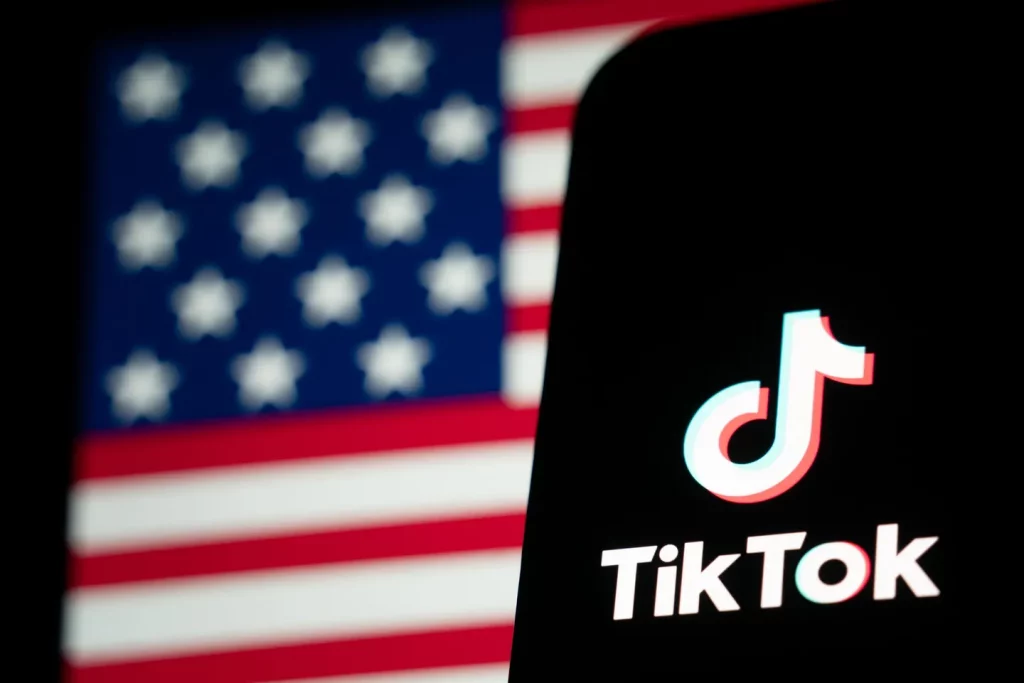The U.S. vs. TikTok: The Bigger Picture Behind the TikTok Ban
TikTok is a social media application that allows individuals to connect from around the world, sharing content that is suited for any need. Most notably, TikTok is known for endless scrolling and a user curated algorithm that seems to read users’ minds. TikTok has over one billion users globally and has driven $15 billion in revenue for US small businesses, increasing sales by 88%. The social media app has fostered opportunities and discovery for millions of entrepreneurs across the globe.
TikTok tracks which videos users engage with and how long they do so. Their privacy policy enables the app to track the contents of direct messages, country location, internet address, and device types. With consent, the platform can also collect users’ exact location, contacts, age and phone numbers. This data collection is on par with other social media applications by using users’ interests to refine the feed with content that will keep people engaged. Many concerns about privacy are due to TikTok’s connection to China. Many government officials worry that the Chinese government could use the app to access sensitive information about users and use such data in secretive or harmful ways. But, the Chinese government does not need TikTok to gain access to Americans’ personal information as they could just buy it from data brokers who specialize in buying and selling consumer personal data. While it is a scary thought to have our personal data in the hands of the Chinese government, the larger concern is that any company could be collecting our data. Addressing these data privacy concerns should apply to any company who gathers and sells consumer data to protect people from the reach of any company, not just specifically those with foreign ties.
In a nine-month legal battle between ByteDance and the United States government, on January 17, 2025, The US Supreme Court issued a decision in TikTok, Inc. v. Garland that upheld the TikTok ban passed by Congress. Under the Protecting Americans from Foreign Adversary Controlled Applications Act, it is now unlawful for companies in the US to provide services to distribute, maintain or update the social media platform TikTok, unless US operation of the platform is severed from Chinese control. The Act expressly designates any application that is operated, directly or indirectly by ByteDance Ltd. or TikTok or any subsidiary or successor thereof and establishes a general designation framework for any application that is operated by a covered company that is controlled by a foreign adversary determined by the President to present a significant threat to the national security of the United States.
This decision has sparked a lot of controversy, specifically regarding our First Amendment free speech rights. The Court reasoned that the Act does not target particular speech based upon its content or regulate speech based on its function or purpose and is subject to intermediate scrutiny. The law must further an important government interest unrelated to the suppression of free expression and not burden substantially more speech than necessary to further that interest. Because Congress has determined divestiture is necessary to address its well-supported national security concerns regarding TikTok’s data collection practices and relationship with a foreign adversary, the Act does not substantially burden speech more than necessary, and there is no violation of users’ First Amendment rights.
For now, President Trump has postponed the enactment of the law to allow his administration to determine the appropriate course forward in an orderly way that protects national security while avoiding an abrupt shutdown of the app. The future of TikTok is shaky and the impact of the Act could negatively affect millions of users, small businesses, and influencers.
Article Written by Michelle Wilson
Sources:
Addison Dunlap, The Supreme Court Upheld the US TikTok Ban. Now What?, NYU, (Jan. 22, 2025), available at https://www.nyu.edu/about/news-publications/news/2025/january/sprigman-tiktok-q—a.html#:~:text=TikTok%20and%20its%20parent%20company,seek%20to%20regulate%20TikTok’s%20speech., (last visited Feb. 16, 2025).
TikTok Inc. v. Garland, 220 L.Ed.2d 319 (U.S. 2025)
Demystifying TikTok data collection, PIRG, (July 26, 2024), available at https://pirg.org/articles/demystifying-tiktok-data/, (last visited Feb. 16, 2025)
TikTok, TikTok: Helping Grow Small- and Mid-Sized Businesses and Delivering Value for Consumers Across the United States, TikTok, (April 2024), available at https://a-us.storyblok.com/f/1018266/x/de2d6d149f/tiktok_us_impact.pdf, (last visited Feb. 16, 2025).
Sophia Vento, TikTok returns to Apple, Google app stores amid Trump ban delay, The Hill, (Feb. 13, 2025 at 9:45 PM), available at https://thehill.com/policy/technology/5144797-tiktok-apple-google-app-stores-ban/, (last visited Feb. 16, 2025).

